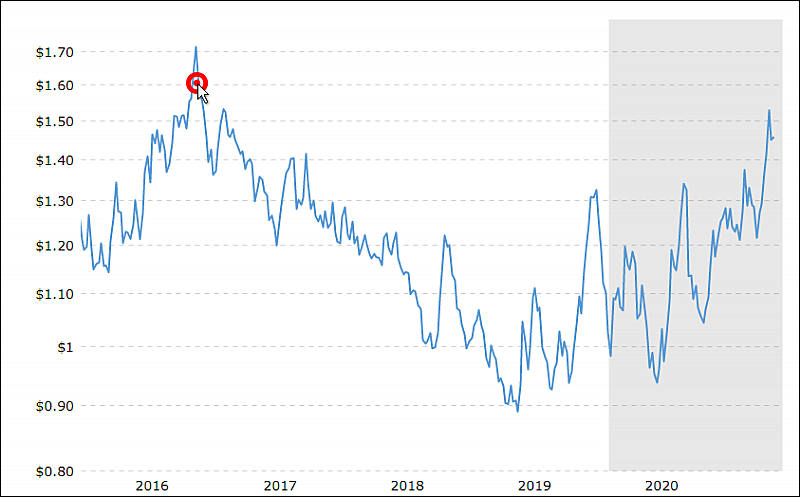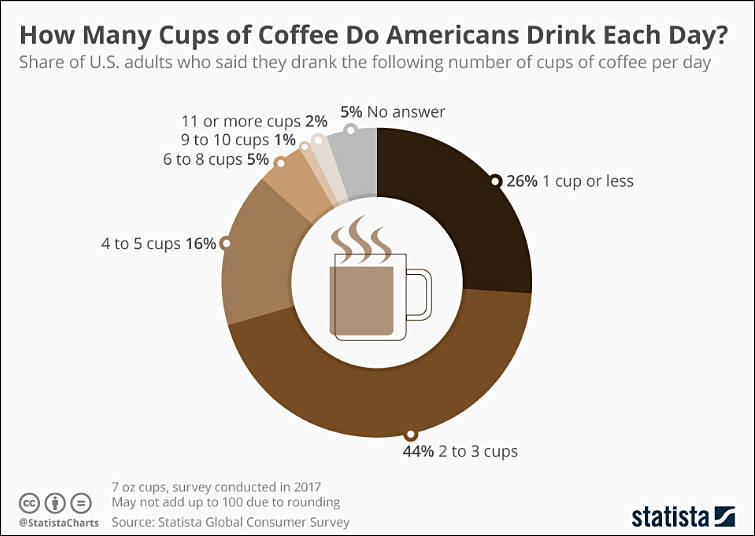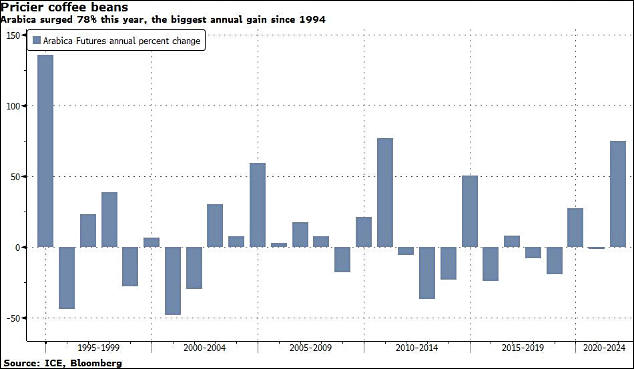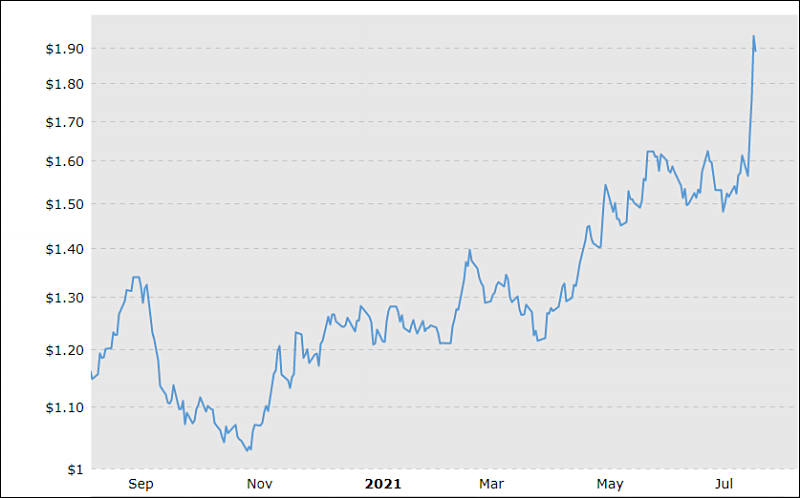
It allows to keep PV going, with more focus towards AI, but keeping be one of the few truly independent places.
-
Thing about roasters is totally true. Here we had that small roaster next home in a city I lived previously, good coffee, not expensive, very sweet, oily and thick. I used to buy from them a day or two after new batch direct from the factory. They bested even expensive coffee. Now it looks like they choose to keep the price but bring the costs down. Maybe they fired some people, but surelly they are not buying the good grains anymore, their coffee is now dry roast with flat taste, very little oil at all. Still not bad coffee but nothing near the old days.
-
Note that since COVID start prices for good coffee jumped significantly due to consumption jump, industry is very inert and can't react with more supply.
Yet, income of most people did not.
-
Another capitalism illustration
One of the largest and most known of B2C roasters in Mordor has all the qualities of typical capitalist business.
Main founder is son of the owner of largest green coffee importer, who is also one of the largest roasters dealers and have their own experts in coffee and their own working roasters. So, guy had absolutely no risk, zero. And still has special prices for green coffee and roasters that no one can match.
Yet, as it is advanced shark - prices are among highest in the niche. Guys even use bad trick with non standard coffee doses they sell getting big premium to price (they use 150/400/800g, instead of standard 250/500/1000g that competition use). Prices are such not because only quality, it is pretty standard. But because very big marketing expenses and very big personal appetites. Guys love expensive cars, exotic travels, super expensive equipment including paying huge money to transport and restore some outdated stuff.
-
Old and new espresso
Classic definition
Hot water, passing at a pressure of 9 atmospheres through a correctly ground dose of coffee (7 grams), produces a portion of espresso (25-30 milliliters) during the extraction time (25-30 seconds).
This is also formula used by Nespresso machines - 5.5-7.2 grams of coffee per capsule.
Modern roasters and influences will try to convince you to use maximum capacity of 58mm basket - around 18-20 gramms. All of them stand for 1:1,9 to 1:2.1 ratio. So, for 19 grams you get around 38 grams of coffee.
Notice how much more profits it is for them... :-)
-
Long two part video with big green coffee resellers discussing why they are absolutely required despite being total parasites
Very interesting to see few open enemies of the people talking and smiling.
For example, they fixed dollar price around red circle time (late 2016) and in video they explain it as they did it because they wanted "stability", but just open price chart

And you see that this guys just stole billions on only this one thing due to price trend.

 sa17284.jpg800 x 497 - 49K
sa17284.jpg800 x 497 - 49K -
The US is the largest coffee market in the world with over $80 billion in revenue, and almost 60% of the coffee sold in the country is brewed with premium beans.
We analyzed 481 US coffee roasters and looked at what services they offer to their customers. Let's take a look at the results.
The average price for a 12oz (340 grams) bag of freshly roasted coffee is $16.90 (around $50 per kg). The least expensive price is $7, and the most expensive bag will cost you $59.
For reference - good green arabica cost (in US) is $6 per kg (this is not big wholesale). $12 is really top kinds. Robusta is $3 per kg. Farmers get from around 20% for small to 70% for large owners from this.
For example, espresso blend will be sold to you for around $40-$50 per kg, but source cost is $5-5.4. If you add water evaporated during roast it will be $6.4 tops. So, it is 5-7.8x times price rise for pretty basic procedure.
-

The most popular type of coffee in the U.S. is good old drip coffee, with 63 percent saying they consumed it. 22 percent of Americans said they drank iced coffee, followed by instant coffee (18 percent) in third place.
One huge advantage of espresso is that you get it fast with very rich flavor and much less caffeine.

 sa17510.jpg755 x 536 - 47K
sa17510.jpg755 x 536 - 47K -
Asher Yaron on The Truth About The Perfect Cup of Coffee
-
Interesting design
-
Arabica coffee futures are about to register their largest annual gain in a quarter-century due to a global deficit.
Arabica coffee futures jumped 78% to about $2.30 per pound in New York this year, putting it on track for the best year since 1994.


 sa19146.jpg634 x 369 - 34K
sa19146.jpg634 x 369 - 34K
Howdy, Stranger!
It looks like you're new here. If you want to get involved, click one of these buttons!
Categories
- Topics List24,059
- Blog5,725
- General and News1,385
- Hacks and Patches1,153
- ↳ Top Settings33
- ↳ Beginners256
- ↳ Archives402
- ↳ Hacks News and Development56
- Cameras2,388
- ↳ Panasonic995
- ↳ Canon118
- ↳ Sony156
- ↳ Nikon96
- ↳ Pentax and Samsung70
- ↳ Olympus and Fujifilm102
- ↳ Compacts and Camcorders300
- ↳ Smartphones for video97
- ↳ Pro Video Cameras191
- ↳ BlackMagic and other raw cameras136
- Skill1,960
- ↳ Business and distribution66
- ↳ Preparation, scripts and legal38
- ↳ Art149
- ↳ Import, Convert, Exporting291
- ↳ Editors191
- ↳ Effects and stunts115
- ↳ Color grading197
- ↳ Sound and Music280
- ↳ Lighting96
- ↳ Software and storage tips266
- Gear5,420
- ↳ Filters, Adapters, Matte boxes344
- ↳ Lenses1,582
- ↳ Follow focus and gears93
- ↳ Sound499
- ↳ Lighting gear314
- ↳ Camera movement230
- ↳ Gimbals and copters302
- ↳ Rigs and related stuff273
- ↳ Power solutions83
- ↳ Monitors and viewfinders340
- ↳ Tripods and fluid heads139
- ↳ Storage286
- ↳ Computers and studio gear560
- ↳ VR and 3D248
- Showcase1,859
- Marketplace2,834
- Offtopic1,335








